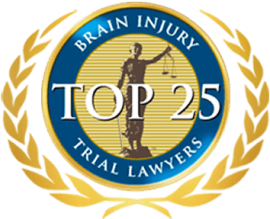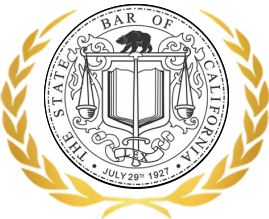California Car Crash Attorneys
- Do I Need a Car Crash Lawyer for Minor Accidents?
- When the Accident is Severe
- Car Crash Attorneys Working for Contingency Fees
- Causes of Motor Vehicle Crashes
- Types of Severe Motor Vehicle Crashes
- Car Crash Statistics
- Common Car Crash Injuries
- In a Car Crash, Who Is At-Fault?
- Legal Standards for Car Accident Lawsuits
- Damages a Car Crash Attorney Can Help You Seek
- Do I Have a Valid Car Crash Claim?
No-fees, Unless We Win! Get Your Car Fixed or Replaced. See a Doctor Today
Motor vehicle accidents make up a substantial portion of California’s personal injury and wrongful death claims. Many of these claims are quite similar, but each one has its unique details. Each one deserves its own thorough investigation by an experienced team of California car crash attorneys.
You can find this team at dedicated car crash law firms. Without such an investigation, complete financial recovery is doubtful. Schedule your Free Consultation by calling (888) 488-1391 to speak with one of our car crash attorneys in California. We’ll tell you if you have a case, in five minutes or less.
Our client was parked on the side of the road and was struck by the defendant driver traveling at a high rate of speed.– ARASH KHORSANDI
Do I Need a California Car Crash Lawyer for Minor Accidents?
If you were involved in a minor accident, you might not need the services of California car crash attorneys. However, it’s always better to have a consultation with one and find out that you don’t have a case they can help with than to leave money on the table. If you don’t meet with an attorney, you will never know how much compensation you might have received for your injuries.
In fact, personal injury consultations from our award-winning firm are always free. You have nothing to lose by making an appointment to discuss your case with one of our reputable car crash injury attorneys.






When the Accident is Severe
On the other hand, severe accidents almost always benefit from the legal counsel of crash lawyers.
Unfortunately, more often than not, insurance companies and their adjusters attempt to take advantage of injured individuals who don’t have the representation of a California car crash attorney.
This scenario might seem odd at first but keep in mind that car insurance companies are still businesses. They hate to lose money, just like any other business. If they pay every claimant fair compensation for their injuries, they will lose money.
Claimants without legal counsel are easy targets. They usually don’t know what their claim is worth and are willing to settle for almost anything. However, when they hire a car crash lawyer, insurance companies know that they are serious about receiving the compensation they are entitled to receive.
California Car Crash Attorneys Working for Contingency Fees
The California car crash attorneys at Arash Law led by Arash Khorsandi, Esq. are here to answer your questions and provide you with the legal support you need. After learning more about the circumstances surrounding your accident and injuries, we will tell you if you need a lawyer or not and why. Our goal is to provide you with the information you need to make informed decisions for yourself.
If you decide to hire us, leave your wallet at home. We don’t require any upfront costs or advance payments. If our team doesn’t recover injury compensation on your behalf, you owe us nothing at all. We only work on a contingency fee basis, which means we don’t get paid unless you do.
A farm worker, suffered multiple broken bones and other orthopedic injuries resulting from an auto accident where the defendant driver attempted to make a left turn in front of our client in heavy fog. – ARASH KHORSANDI
Causes of California Motor Vehicle Crashes
In the United States, motor vehicle accidents are the most frequent cause of personal injuries. Almost two million people are injured each year in these accidents. Over 200,000 of them are in California alone. These accidents result in tens of thousands of dollars in:
- Medical expenses
- Lost wages and income
- Property damage to vehicles
The at-fault driver in the collision is liable for the damages of those involved who were injured. In California, fault is determined by which driver was negligent in causing the accident. Even if more than one driver was at-fault, one might have a successful claim for damages from the other.
It’s essential to note that not all motor vehicle collisions in California are the result of negligent drivers. Some are caused by defective car parts, hazardous road conditions, or nowadays even driverless vehicle defects. In these cases, it may not necessarily be another driver who is at fault. It could be a government agency or the manufacturer of the vehicle or its parts.
Many times, injured individuals need to turn to a California car crash attorney for help receiving a full and fair recovery of their damages. In some cases, the lawyer will need to file a civil lawsuit to recover money from the liable party to pay the victim.
Compensatory damages available in a car crash injury lawsuit may include:
- Medical expenses
- Lost income
- Loss of earning capacity
- Pain and suffering
- Loss of consortium
- Scarring or disfigurement
If you want to maximize your potential compensation, it’s imperative that you speak to our skilled California car crash lawyers about your case before dealing with the insurance company or accepting a settlement check.
Types of Severe Motor Vehicle Crashes
There are several types of motor vehicle accidents that result in severe injuries to those involved. The California car crash attorneys most frequently represent clients who have been in these types of injury crashes.
When a vehicle collides from behind with the driver in front of them, a rear-end collision occurs. Sometimes these accidents can be minor fender-bender type crashes, and other times they can be severe. It depends on the speed at which each vehicle was traveling and the other circumstances at the time.
Typically, in rear-end crashes, it is the driver in the back who is at-fault. They are frequently following too close or not paying attention. Although, if the vehicle in front were moving in reverse at the time of the accident, that driver would likely be at-fault for the accident.
Sometimes called a side-impact collision, a "T-bone" accident happens when one side of a vehicle is hit by the front or rear of another vehicle. Broadside collisions such as these frequently end with severe injuries for all parties involved.
A sideswipe collision happens when one car's side collides with the side of another, usually when both vehicles are traveling in the same direction. Drivers who don't check their blind spot before changing lanes and drivers in parked vehicles re-entering a moving lane of traffic without first ensuring the lane is clear are the most frequent causes of sideswipe collisions.
If the vehicles are traveling at low-speeds, sideswipe collisions often only cause cosmetic damage. However, at higher speeds, the injuries can often be substantial and severe.
Head-on collisions happen when two vehicles crash directly into each other while traveling in opposite directions. Even at lower speeds, head-on accidents more often than not result in severe injuries or death. A head-on car crash attorney can investigate precisely how your accident happened and who is to blame.
Single vehicle accidents involve only one car and are sometimes a result of a crash with an immobile object such as a tree or road sign or veering off the roadway. They can be attributed to driver error involving factors like intoxication or fatigue. They also occur due to external factors like unsafe road conditions or poor weather.
A rollover accident occurs when one of the cars is overturned due to a collision or leaving the roadway. They are frequently severe, causing substantial injuries and possibly even death.
Whenever a driver causes an accident or is involved in an accident and flees the scene, a hit-and-run has occurred. By law, all drivers must stop at the scene of an accident and provide their contact information. If they don't, they can face a ticket and criminal hit-and-run charges.

California Car Crash Statistics
Sadly, far too many motor vehicle accidents occur each day across the nation and California. As per Traffic Safety Facts released by the National Highway Traffic Safety Administration (NHTSA), there were an estimated 6.3 million police-reported crashes last year alone. Because of these accidents, 2.44 million individuals were injured on America’s roads.
Many of which were attributed to driver negligence. Consider these other concerning statistics about motor vehicle accidents in the U.S. and California:
- 35,092 people lost their lives nationwide last year alone due to vehicular accidents
- Almost half (48 percent) of all fatally injured vehicle occupants weren’t wearing their seatbelt at the time of their accident (2015)
- 29 percent of all traffic deaths in the U.S. involve alcohol (2015)
- In California, 4,382 drivers were involved in fatal accidents during 2015
- 955 of California’s deadly crashes happened while a driver was speeding
- 914 of California’s deadly crashes happened while the driver under the influence of alcohol
Common Car Crash Injuries
Car wrecks are among the most common causes of personal injury in the U.S. More than 5.6 million motor vehicle collisions happened in the U. S. in 2012 alone, causing more than 30,000 fatalities and 1.6 million serious injuries.
It’s well-known that automobile manufacturers continue to implement life-saving features in new vehicles. However, injuries resulting from vehicle accidents remain a serious risk to motorists on American roadways. Here are a few of the most frequent automobile injuries that occur.
One of the most common neck/spine injuries in a car accident is called "whiplash." When the collision's impact causes someone's head to be jerked forward and then backward or to the side, the velocity of this action frequently inflicts severe strain on the ligaments and muscles in the upper back and neck. Most whiplash injuries resolve with time; some can become disabling.
Other soft tissue injuries in the upper back and neck can occur and cause disc herniation or skeletal trauma. Victims might need a lengthy recovery period, treatment through surgery, physical therapy, or long-term pain management. Severe spinal injuries are one of the most expensive car accident injuries to treat. If there is extensive trauma to the spine, partial or total paralysis and even death can result.
Some spinal cord injuries can never be fully corrected and leave victims with permanent disabilities. People with spinal injuries of this magnitude may not be able to ever return to work, care for themselves, or engage in everyday living activities.
In the U.S., over 17 percent of all traumatic brain injuries (TBI) are caused by car accidents. TBIs can result when a quick movement of the skull causes the brain to hit the hard surface inside the skull. The brain rests freely within the skull, and there is nothing that attaches it to one side or the other. If the brain impacts the inside of the skull hard enough, severe and even fatal injuries can occur.
A TBI can cause swelling, bruising, bleeding of the brain, and other concerning conditions such as a skull fracture. Sometimes a TBI will cause immediate loss of consciousness and other noticeable symptoms. Other times, they can be quite challenging to diagnose. Some victims may not have symptoms until much later after the accident.
However, a TBI requires emergency medical care as soon as possible. Many also need extensive follow-up care and diagnostics, such as a CT (Computer Tomography) scan or an MRI (Magnetic Resonance Imaging). These neurological injuries can cause extreme impairment to the victim's mental functioning.
In the most severe cases, they may require extensive or even lifetime rehabilitation. Victims who suffer from a TBI will most certainly need the services of experienced California car crash attorneys to ensure they get the compensation necessary to cover their medical needs and future lost wages.
Arms and legs are especially susceptible to injuries in car accidents. Some require emergency medical care, surgery, and follow up treatments. Bone fractures can lead to infections, the need for physical therapy, and surgical techniques to restore function. Severe breaks can result in the need to amputate the limb, leading to significant impairment and decreased quality of life.
These victims will have difficulty engaging in everyday tasks and sometimes even earning a living. Minor fractures, sprains, or spurs also frequently occur from automobile crashes. While these injuries aren't usually difficult to treat, some might need extensive healing and rehabilitation to return normal function in the injured area.
Facial injuries include minor bruises, scrapes, or cuts, but also more severe injuries, such as fractures, burns, deep lacerations, and jaw or dental damage. Lacerations, such as deep cuts, scrapes, or punctures into the underlying skin, are common even in minor motor vehicle accidents. The soft and vulnerable tissues of the face are especially susceptible to injury from impact with parts of the car's interior, thrown debris such as personal items, or broken glass. In severe cases, victims can sustain punctures from related injuries such as broken bones or other sharp objects.
Facial bones are frequently damaged, ranging from cosmetic damage to debilitating injuries, for instance, a broken jaw. Depending on the extent of the damage, injured individuals might need reconstructive or cosmetic surgery to restore the normal function and aesthetic of their face. Some facial injuries, such as a broken nose, are quite simple to treat. Other intricate injuries like a jaw dislocation might need extended treatment, rehabilitation, and recovery time.
No matter the extent of their physical injuries in a car accident, some victims will suffer one or more psychological conditions as a result of the accident. Post-Traumatic Stress Disorder (PTSD) is common and frequently requires treatment from a mental health professional after a car accident. Those with PTSD often have severe distress, sometimes severe enough that years of treatment are required to return to normal thought processes.
Other psychological injuries include anxiety, panic attacks, and depression. Sometimes these injuries can be due to the accident itself or because of the recovery. Psychological injuries are frequently difficult to treat.
The impacted individual may need therapy from a licensed professional, medication, and a lengthy recovery period before reaching their pre-accident mental state. Oftentimes, victims with psychological injuries can receive compensation for them. It's crucial to discuss your psychological injuries with your California car crash attorneys to find out if compensation might be available for them.
In a California Car Crash, Who Is At-Fault?
Fault in an auto collision isn’t always straightforward. Typically, fault is rooted in the legal concept of negligence. Suppose a driver fails to act reasonably to prevent an accident.
In that case, they can be held liable for any damages they cause. A seasoned California car crash attorney can help build a case for the other driver’s negligence. Negligence can take on many forms, including careless driving or simply not paying attention when driving or disobeying traffic laws. Common negligent causes of car accidents include:
- Speeding
- Running a red light or a stop sign
- Texting while driving
- Distracted driving
- Failing to yield the right of way
- Driving under the influence of alcohol or drugs
Legal Standards for California Car Accident Lawsuits
Under California’s negligence laws, negligent drivers are liable for the injuries and damages they cause in an accident. However, the injured individual must show that the other party was negligent in causing the accident in order to receive compensation for their damages.
The legal standards for negligence in a California car accident lawsuit are:
- The at-fault party owed the injured party a duty of care
- The at-fault party violated their duty of care through negligence
- Negligence resulted in the injured party’s damages and injuries
When you hire a well-versed California car crash attorney from our legal team, they can help prove each of these legal standards to ensure fair compensation for your claim.
Damages a California Car Crash Attorney Can Help You Seek
Damages in a car accident arise from the injuries and losses suffered by the injury victim. When filing a personal injury claim, car crash victims should ask for the maximum compensation available from the negligent party. Available damages in a car accident lawsuit typically include both economic and non-economic compensatory damages.
Economic damages have a set dollar value, such as medical expenses or car repairs. However, non-economic damages can be difficult to value and include pain and suffering resulting from the accident. Common compensatory damages in a California road accident can include:
- Medical costs
- Future medical care and treatment
- Car repairs or replacement costs
- Lost income from not being able to work due to an injury or medical appointments
- Lost future earning capacity
- Emergency medical treatment
- Physical therapy or occupational therapy
- Medication and medical supplies and equipment
- Pain and suffering
- Mental anguish
- Compensation for loss of limb
- Compensation for scars or disfigurement
Do I Have a Valid California Car Crash Claim?
- It was at least partially caused by another party’s negligence
- It resulted in you or a family member suffering severe physical injuries















Call Our California Car Crash Attorneys for a Free Consultation
Our California personal injury attorneys have recovered $500 million in injury compensation for our previous personal injury clients. Many of them happen to be car accident victims just like you.
For decades, injured individuals in San Francisco, Riverside, San Jose, San Diego, Sacramento, Sherman Oaks, and throughout California have relied on our car accident attorneys to help them as they seek the justice and compensation they are entitled to receive.
Call our acclaimed injury firm today at (888) 488-1391 or use our convenient online tool on our website to schedule your free car injury accident case review. Your legal rights and options are time-barred, so reach out to a car crash attorney today. Research car crash attorneys near me and what to ask an attorney before hiring for a car crash case and come speak to us.































